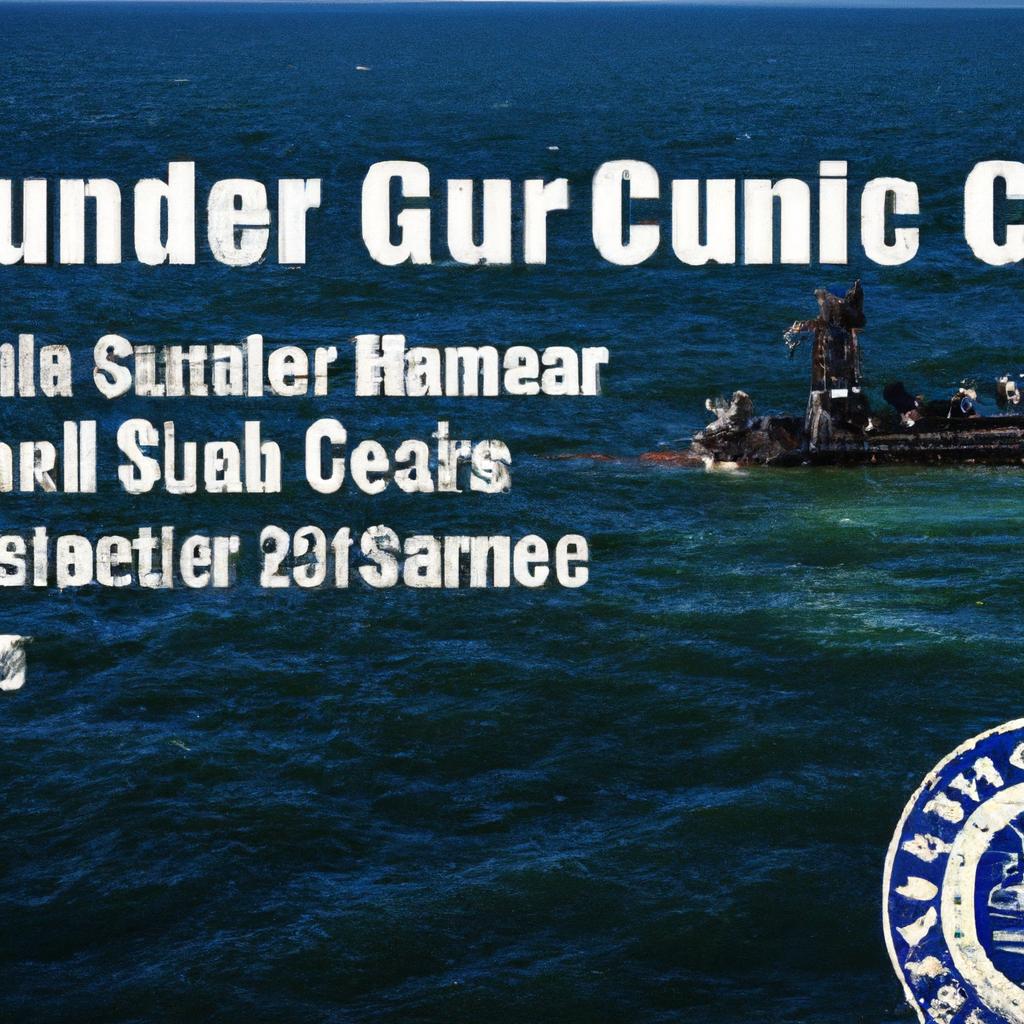The tragic conclusion of the search for the missing OceanGate Titan submersible was reached on Thursday when search-and-rescue teams located a “debris field” on the ocean floor near the Titanic wreck site. The crew had been en route to the Titanic before losing contact with their surface vessel on Sunday morning.
U.S. Coast Guard Rear Admiral John Mauger informed reporters that the discovered debris was indicative of a catastrophic loss of the pressure chamber. The families of the crew were promptly notified, and Admiral Mauger extended his deepest condolences on behalf of the United States Coast Guard and the unified command.
Following the announcement, a robotic vehicle was responsible for making the discovery, as reported by the USCG. The Titan had lost contact with its surface vessel, the Polar Prince, approximately one hour and 45 minutes into its dive on Sunday morning, located about 900 miles east of Cape Cod, Massachusetts, and around 400 miles southeast of St John’s in Newfoundland, Canada.
Richard Garriott, president of the Explorers Club, relayed information to the group that debris resembling the landing frame and a rear cover of the tail instrument compartment of the Titan had been found from previous dives. The fate of the submersible itself remained unknown.
The missing submersible housed OceanGate CEO Stockton Rush, British adventurer Hamish Harding, Shahzada and Suleman Dawood from a prominent Pakistani family, and Paul-Henry Nargeolet, a renowned Titanic expert. OceanGate expressed their sorrow for the loss of these individuals, highlighting their shared passion for ocean exploration and conservation.
A unified command led by the USCG involved assets from commercial, research, and military entities from Canada, France, and the U.K. in the search efforts for the missing submersible.
Search-and-rescue teams utilized advanced technology such as high-tech buoys, ROVs, surface vessels, and aerial searches throughout the week to locate the missing sub. Despite ongoing efforts, the prospects of recovering the victims’ remains remained uncertain due to the challenging conditions on the ocean floor.
Multiple ROVs were deployed in the Atlantic, including the Victor 6000 from the French L’Atalante research vessel and the Horizon Arctic’s ROV from a Canadian vessel. Sounds described as “banging” were picked up during the search, but their source remained unidentified as of Wednesday.
The search for the missing Titan submersible continued with a focus on gathering more information from the ocean floor. The challenging environment and the nature of the debris suggested a catastrophic implosion of the vessel, underscoring the difficulties faced by search-and-rescue teams in their efforts.
Missing Titanic Submarine Found, Crew Killed in Deep-Sea Catastrophe, Coast Guard Says
Tragedy struck in the deep waters of the Atlantic Ocean as the missing Titanic submarine was finally found, but with a grim discovery—the entire crew had perished in a deep-sea catastrophe. The U.S. Coast Guard confirmed the devastating news, leaving many questions unanswered and hearts heavy with grief.
The Discovery
After weeks of search and rescue efforts, the missing Titanic submarine was located at a depth of over 12,000 feet below the ocean’s surface. The initial excitement of finding the long-lost submersible quickly turned into horror as it became apparent that there were no survivors.
The wreckage of the submarine was scattered across the ocean floor, indicating that the vessel had suffered a catastrophic failure. The cause of the accident remains unknown, and a full investigation will be conducted to determine what led to this tragic event.
The Crew
The crew of the missing Titanic submarine consisted of highly trained and experienced professionals, dedicated to exploring the depths of the ocean and uncovering its secrets. Their loss is a devastating blow to their families, friends, and the entire underwater exploration community.
Each member of the crew had a unique skill set and a passion for discovery, making their deaths all the more heartbreaking. Their names will be remembered and honored for their contributions to the field of deep-sea exploration.
Impact on the Community
The news of the missing Titanic submarine and the tragic fate of its crew has sent shockwaves through the underwater exploration community. Many are mourning the loss of their colleagues and friends, while others are grappling with the inherent risks of their chosen profession.
This tragedy serves as a stark reminder of the dangers of deep-sea exploration and the importance of safety protocols and equipment. It will undoubtedly lead to a reassessment of current practices and procedures to prevent similar incidents in the future.
Looking Ahead
As the investigation into the missing Titanic submarine continues, the focus will be on determining what went wrong and how to prevent such a tragedy from happening again. The families of the crew members will be provided with support and assistance during this difficult time.
While the loss of the crew is a heavy burden to bear, their legacy will live on in the annals of deep-sea exploration. Their passion for discovery and dedication to their work will inspire future generations to continue pushing the boundaries of underwater exploration.
Conclusion
The discovery of the missing Titanic submarine and the tragic loss of its crew is a sobering reminder of the dangers that lie beneath the ocean’s surface. As we mourn the lives lost in this deep-sea catastrophe, we must also honor their memory by continuing to push the boundaries of underwater exploration with safety and respect for the unknown.


